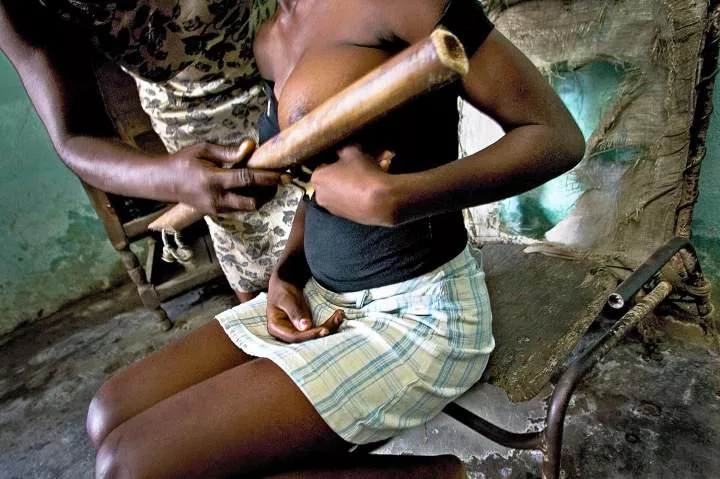Breast flattening, the practice of mothers crushing lumps in the breasts of their young daughters using wooden mashers called 'tapoli,' was once a common tradition in many Ghanaian households.

Young females with developing breasts would have these lumps crushed without understanding the true reason behind it.
Some girls believed that this practice would make their breasts grow larger when they developed again, a misconception that persisted for generations.
In reality, the practice had nothing to do with enhancing breast size.
The actual motive behind breast flattening was to delay the early development of breasts.
Mothers were concerned that their daughters might face premature sexualisation and the challenges that came with a mature body at a young age.
In essence, they wanted to protect their daughters from entering the adult world too early.
Mothers, fearing that their daughters were not emotionally or mentally prepared to deal with the temptations and complexities of adulthood, used the guise of making the breasts grow larger next time to save them from explaining the real reason behind the practice.
The truth was that they wanted to preserve their daughters' innocence and shield them from the pressures and responsibilities that came with womanhood.
Explaining the actual reason for a child at the time might have been challenging, as it required an understanding of societal expectations and the desire to maintain the cultural norm of delaying female maturity.
It was a well-intentioned albeit misunderstood practice that reflected the mothers' concern for their daughter's well-being in a society where early sexualisation could have serious consequences.
Over time, as cultural beliefs and norms evolved, this practice gradually faded away, and there is now a growing awareness of the importance of educating young girls about their bodies, health, and self-acceptance.
















Comments